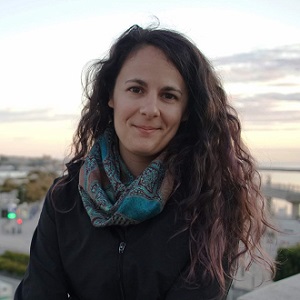Keri Hoadley - 2021 SPIE Women in Optics Planner
David and Ellen Lee Postdoctoral Fellow in Experimental Physics
California Institute of Technology, USA
SPIE Early Career Professional Member
 |
Born in USA
|
I have always held a deep curiosity about the workings of the Universe. It was my father who encouraged my love of math, because he enjoyed it too. Both of my parents made me feel like I could do whatever I wanted, and both knew from a young age that I was very intrigued by science and engineering. I would watch shows about space and physics and whenever I saw women being interviewed with telescopes in the background or with them working on hardware for the footage, I’d say, “That’s going to be me!”
As a postdoc, my inspiration is drawn from the women I have the privilege of working with every day. I am part of an international, diverse team led by women on many different levels, and this has made all the difference in helping to improve my confidence and inspiring me to define ambitious career goals.
I am the project scientist of a cutting-edge astronomical telescope that flies on a NASA-provided scientific balloon to the edge of space, floating about 40km above the ground for an entire night. This experiment is extremely important for helping us understand the delicate balance between how galaxies gather material that ultimately forms stars and planets, to how their mass is dispersed and thrown away from galaxies as stars die.
For a long time during graduate school, I did not feel like I belonged. I joined a research group where I was the only woman. My role was to lead the build, calibration, flight, and subsequent data analysis for the payload to fly on our sounding rocket mission, which constituted the breadth of my thesis work. I felt constant push-back against my ideas, decisions, and leadership. I did not feel welcome.
I found solace and advice among other women in my graduate program who were dealing with similar problems at different levels. Finding that women were leading the charge of revolutionary space instrumentation became the catalyst I needed to build my confidence and make me feel like I belonged.
Identify role models in your field – others that you can identify with on a personal level, and especially those who encourage women and minorities to take on leadership roles in STEM.
STEM absolutely needs you and your talents – you are a creative, curious thinker who will bring endless possibilities, new discoveries, and revolutionary ideas to your field of study. I cannot wait to learn all about them!